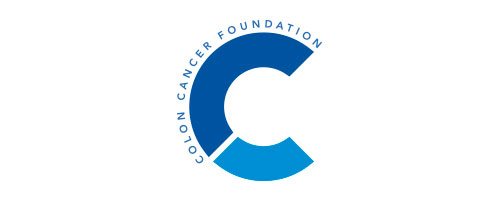Photo credit: Arek Adeoye on Unsplash
After publishing a blog post on Sarah Keadle, Ph.D.’s latest published research, entitled “Impact of Moderate-Vigorous Physical Activity Trajectories on Colon Cancer Risk over the Adult Life Course”, I had the opportunity to sit down and chat with her about these findings and what they mean for colorectal cancer prevention. Dr. Keadle holds graduate degrees from the University of Massachusetts Amherst and Harvard University and is Associate Professor, California Polytechnic State University, San Luis Obispo.
CCF: What were your greatest revelations over the course of this research?
Dr. Keadle: The take home message is pretty consistent with what we see in terms of other physical activity in relation to other disease outcomes, that even moderate amounts of activity are really important.
In our sample, the moderate group was doing about two hours a week of predominantly walking-type activities, and they were protected. Those who maintain that amount of activity over the life course were protected against colon cancer risk.
Those who did a little more activity had a little bit more protection, so they were classified as the “high” active. These individuals were exceeding our current physical activity recommendations consistently throughout the life course relative to those who stayed inactive.
But then I think what’s also interesting is that there’s this: we were able to look at those who increased and those who decreased activity over time. The group who decreased their activity, the “early decreasers”, were in the 30-35- age group and had the worst risk—their risk of developing colon cancer was greater than those who stayed inactive.
And those who were not active when younger but started increasing their activity by age 30, there was evidence suggesting that they may also be protected from developing colon cancer. So if you’re targeting middle-aged adults, it’s not too late to start being active. Even a moderate amount of activity appears to be protective.

Sarah Keadle, Ph.D.
CCF: What kinds of exercises would you recommend for people who have mobility issues and are limited in what activities they can do?
Dr. Keadle: Much of the data show that walking is the most accessible, and the best form of activity for most adults. For those with more serious limitations that don’t allow them to walk, there could be adaptations such as specialized gym equipment. But I think, for the vast majority of adults, if they feel intimidated by the thought of exercising or running, or exercise that will place a lot of stress on joints, or cause them pain or discomfort, you don’t have to be out of breath and sweating and uncomfortable to get the benefits of physical activity. There’s a lot of evidence that just moderate walking is one of the best forms of activity.
As part of the 2018 physical activity guidelines, [the Department of Health and Human Services] launched the Move Your Way campaign to try to promote physical activity at the community level, and I know that they have several resources on how to adapt things to people with different types of disabilities.
CCF: My next question is more about structural barriers to exercise. So people who are living in locations where they don’t really have access to safe parks and gyms. What would you recommend?
Dr. Keadle: That is a huge issue. I think one benefit potentially of COVID is that there are more online resources for at home activities and workouts that are targeted at different levels and different types of activities. So I think that’s a good place to start. It’s also important to spread the message of just getting up and moving, trying to not sit for really long periods of time. Get up and move around your house or try to find places that feel safe, even if it’s the backyard. To get outside and try to break up and get steps in is definitely beneficial.
CCF: Those are great tips. And what kinds of policy changes, if any do you think would help alleviate some of those barriers?
Dr. Keadle: That’s a great question. So the CDC [Centers for Disease Control and Prevention] has launched a campaign around safe streets and complete streets programs to try to make it so that our streets are safer for people to bike, walk, and drive. I’m teaching a class right now on physical activity and public health to undergraduate students, and they ask, “We’ve reviewed the evidence. Physical activity is good. But, what are we actually doing about it?” And I think that the Move Your Way campaign has done a good job of trying to get more community level buy-in. And that’s one of the big things that needs to happen to kind of shift the culture around physical activity.
I think that there are things happening, but it’s definitely slow, and I think aligning physical activity with other goals is important. So, if you have an activity program in a park that may make the park safer and in the long run, you also have the benefit of increasing physical activity.
However, there’s not a lot of money in promoting physical activity. There’s no lobby group that will make money off of promoting physical activity. So, hopefully, we can capitalize on other initiatives and try to convince people to create those types of structural changes. Access to green space is a big predictor of physical activity, so making safe parks available is one of the biggest policy level changes I can think of.
CCF: Yeah, well thank you so much. Lastly, I just want to say congrats again on the publication of the study back in January. That’s amazing. And what is next for you and your team in terms of either just exercise research or colon cancer research?
Dr. Keadle: I have an intervention study for which we’re randomizing our last subject. The study is looking at a strategy to try to reduce screen time in adults. There’s a fair amount of data on kids, but we don’t know a lot about adults in terms of what’s the best way to get people off their screens. And if they do, are they more physically active? And what else changes along with that?
I’m also continuing to do a few epidemiological studies about the interaction between physical activity and sedentary time and how that relates to health. It’s interesting because people cite lack of time as their biggest barrier to being physically inactive—it is the most commonly cited barrier. But then, if you look at the actual time-use data, people are spending like four hours a day on their phones.
So it’s perceived, and I get it that not everybody wants to exercise in the evening. But that’s where that messaging of “move more, sit less, break up sedentary time” and trying to make it approachable and just beginning to get it into people’s lifestyle is going to end up being a huge change in the long run.
CCF: Absolutely, yeah. And maybe even communicating those messages through social media.
Dr. Keadle: Right. We have an app for our study, which feels ironic, that we’re trying to reduce screen time by creating an app that tracks their screen time and gives them feedback and strategies, but it lets [participants] set limits and things like that.
Emma Edwards is a Colorectal Cancer Prevention Intern with the Colon Cancer Foundation.








